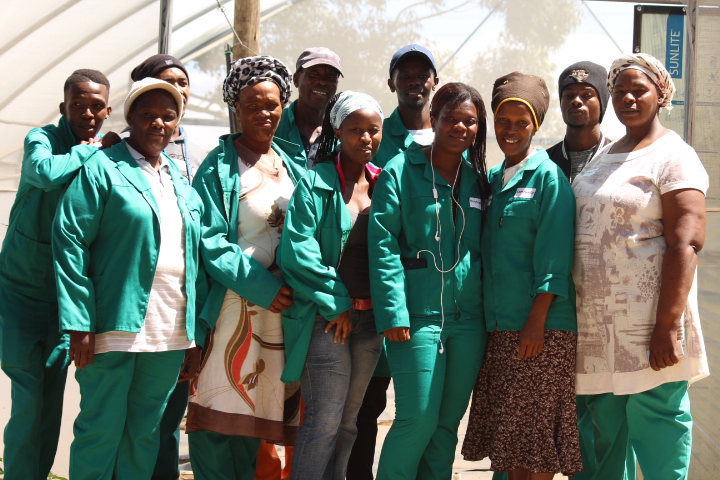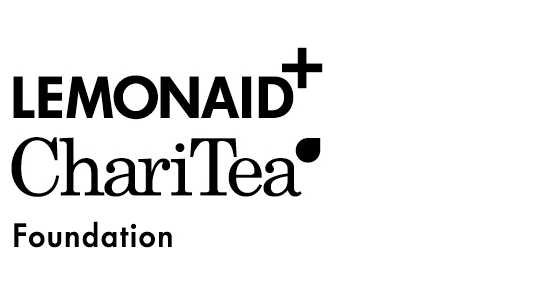Since May 2017 the Lemonaid & ChariTea Foundation has been supporting the non-profit organization (NPO) Nceduluntu Wesley Community Project at the southeast coast of South Africa. The aim of the non-profit organisation is to contribute to the socio-economic development of this historically and climatically disadvantaged region by supporting various income-generating projects. In May 2020, we started a second funding phase (three more years) to provide institutional support for to the organisation, which has been affected by climate change and the associated extreme drought in South Africa.
The projects of the NPO Nceduluntu Wesley Community Project are carried out in Wesley, a community in the Ngqushwa District in the Eastern Cape of South Africa. During apartheid, this area belonged to the ethnically segregated homeland Ciskei. Although all homelands were officially incorporated into different provinces of South Africa in 1994, their sad legacy remains: structural problems such as extreme poverty, high unemployment rates and a relatively low literacy rate characterise the region. In addition, the region has been increasingly affected by extreme weather events such as prolonged droughts and storms as a result of global climate change. For three consecutive years, the region has had significantly below-average rainfall, and from July 2018 to November 2019 there was no precipitation at all. As a result, the Eastern Cape was declared a Drought Disaster Province by the government in November 2019. Even the Corona virus does not spare the country; on the contrary, South Africa is considered one of the current hot spots of the pandemic.
The organisation Nceduluntu is dedicated to fighting poverty and especially the high unemployment rate in the small community in the Eastern Cape. It acts as a so-called project incubator, i.e. as a start-up centre for various projects that generate income for the local population and thus stimulate the economic development of the region. The Nceduluntu Centre provides premises and land on which the projects are located and is responsible for project management, financial management, administration, marketing, logistics, asset management and procurement for the sub-projects. In addition, the participants of the projects are formally employed by Nceduluntu after the basic training until their projects are financially independent. Furthermore, Nceduluntu has set up an information and communication technology (ICT) facility in Wesley, which offers residents the opportunity to use the internet or make photocopies.
Persistent drought forces projects to restart.
Since May 2017, Nceduluntu has been receiving financial support from the Lemonaid & ChariTea Foundation for the funding of two sub-projects: a vegetable seedling nursery and a beekeeping project. Both projects were initially implemented as planned: In the beekeeping project, the institution started by investing in hives, equipment, protective clothing and training materials. In addition, a total of six beekeepers were trained. As the many blue gum trees in the vicinity of Wesley attract numerous wild swarms of bees, many of the 20 hives have already been colonised. When the first honey was harvested and produced in May 2018, demand was high in the local community: everyone agreed that this honey tasted delicious. In addition to local consumers, a large mead producer in nearby Grahamstown ensures a stable market for honey.

Since May 2018, however, the project has come to an almost complete standstill due to the ongoing drought in the Eastern Cape. The bees gradually left the hives as plants and flowers slowly dried out. With the rains, the swarms of bees returned from about March 2020 onwards and the beekeepers were able to gradually increase honey production again. To generate income during the dry season, the project participants also offered a bee removal service for neighbouring villages and holiday resorts. There are also plans to move the hives to a new, more remote area with denser, more pristine nature to attract more swarms of bees.
The vegetable seedling nursery project also started well: Ten people were hired and trained, and since November 2017, seedlings have been sold at affordable prices to local farmers and households in about 30 villages in the province. The project has already made an important contribution to local food security, which has become even more important in times of the Corona pandemic, as transport to markets further away has been restricted by law. However, the drought between 2017 and 2019 was also a major problem for this project: Demand for seedlings collapsed almost completely from one day to the next, as the lack of rain meant that the people in the region could hardly plant anything anymore. As a result of the breakdown of the municipal water supply, the farmers were also no longer able to irrigate their parcels. When it began to rain again at the beginning of the year, the demand for vegetable seedlings among the population increased again. In order to help the community cope with water shortages, Nceduluntu plans to train the project participants in special methods of crop production to mitigate the effects of drought, for example by saving water for irrigation, improving rainwater harvesting and moisture retention in soil. The idea is that the project members act as multipliers by passing on the knowledge gained in the training courses to the local farmers. In addition, the beekeepers plan to obtain bulk orders and thus achieve higher sales by more intensive networking and marketing of their products throughout the Eastern Cape in order to come closer to financial independence.
In addition to these two projects, the Nceduluntu project incubator supervises two more: A small group of weavers who have been producing mohair carpets in all possible variations in the Nceduluntu Centre since 2014 and selling them throughout the country. The project was recently nominated for the national “Female Entrepreneur in Agriculture Award”. Since May 2015, the Nceduluntu Centre has also been home to a needle felting project that provides a group of twelve women with an income. The business of these two projects is already going so well that the project participants no longer need to be financially supported by Nceduluntu.
New Funding to get project incubator going again
In contrast to the first funding period from May 2017 to May 2020, in which the Lemonaid & ChariTea Foundation supported solely the beekeeping and vegetable seedling projects, the new funding period includes the support of Nceduluntu as an institution itself as well as all four sub-projects. This is a reaction to the sudden termination of funding by the founding donor, who had previously covered all running organisational costs. This has led to a financing crisis, which has been exacerbated by the lockdown caused by the Corona pandemic. Due to the long-lasting drought the two projects financed so far could not yet reach the threshold of self-sustaining projects and generate sufficient income for all members. The aim of the continued support is therefore to enable the Nceduluntu Wesley Community Project to continue to provide structural and financial support for its income-generating sub-projects so that they become autonomous and capable of acting independently of the parent organisation. The aim is to ensure that the project participants can manage the finances, procurement, marketing and logistics of their projects independently and efficiently. In the future, Nceduluntu plans to diversify its fundraising. The withdrawal of the founding donor has shown how important it is also for civil society organisations in times of crisis to diversify their income. On the one hand, this makes it possible to hire additional staff and offer more extensive training opportunities, and on the other hand, it enables them to become more resistant to crises.
Strong partnerships are important and the Nceduluntu project incubator is unique in its function for the region of the former “homeland” Ciskei. We are happy to support Nceduluntu for another three years. Especially in these times of crisis and insecurity, it is important that the Nceduluntu Centre continues to offer income opportunities to the project participants, thus promoting the socio-economic development of the region in the long run.




